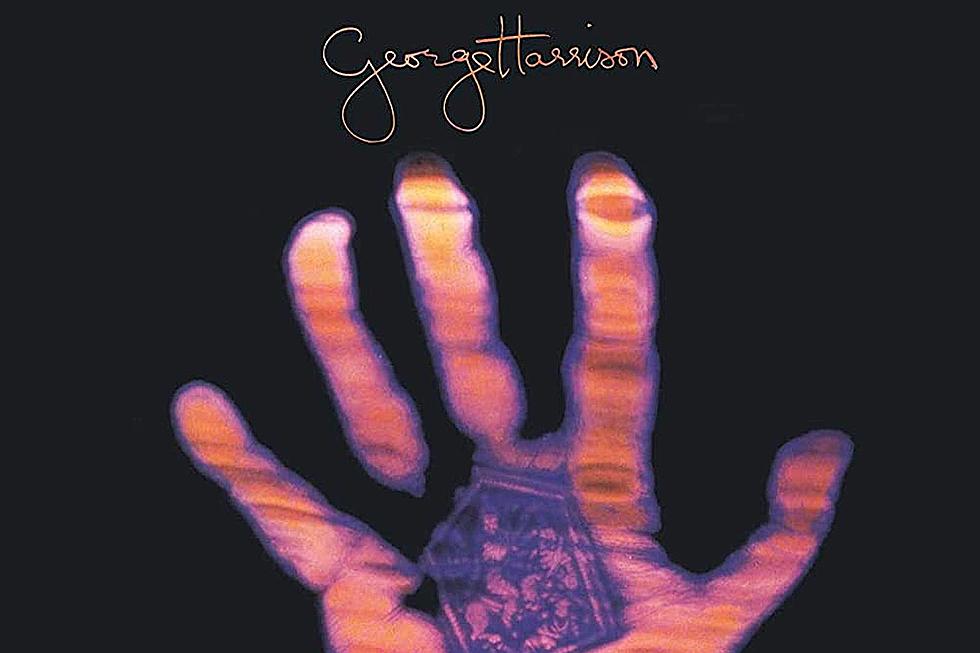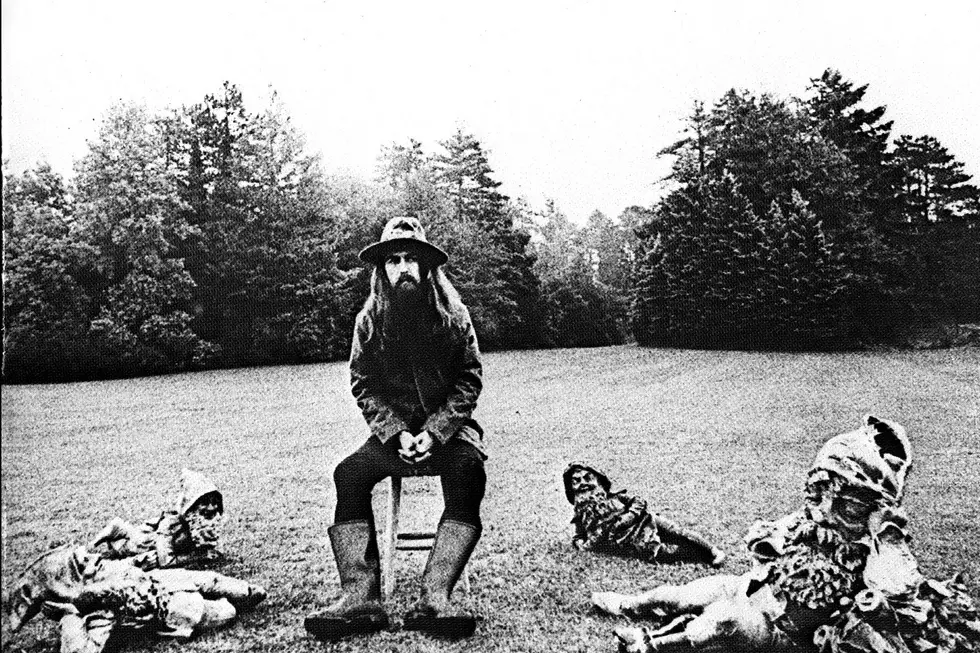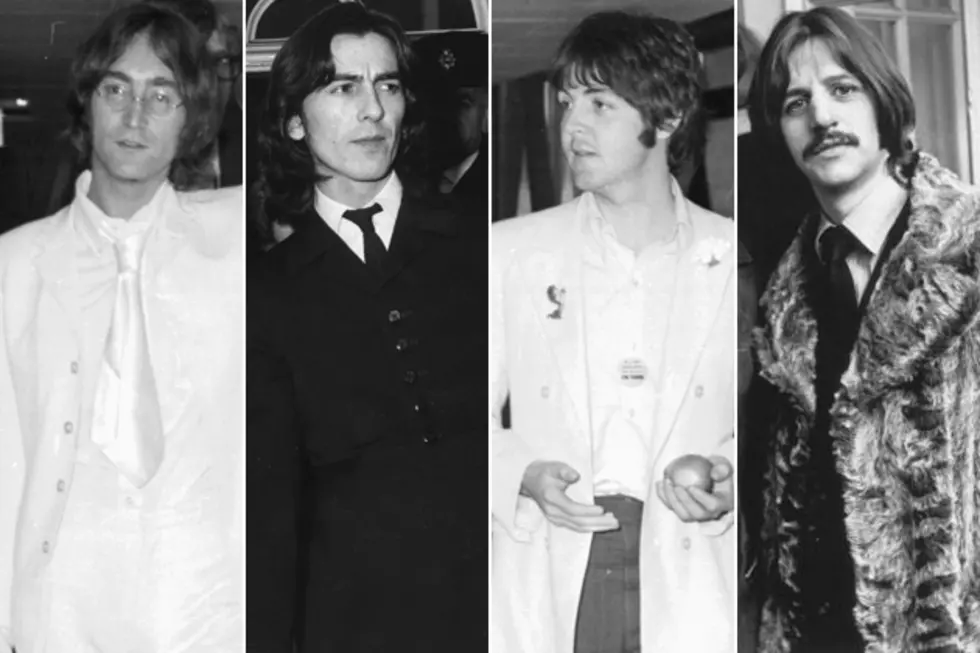
50 Years Ago: George Harrison Digs Deeper on ‘Living in the Material World’
George Harrison moved quickly from his multiplatinum rock debut to a massive relief project for genocide-torn Bangladesh. Two years passed before he entered the studio again to record Living in the Material World.
He spent the period just before struggling mightily with his faith in humanity, as obstacle after obstacle got in the way while Harrison tried to get badly needed benefit funds to those in crisis. There were issues with walking the straight and narrow, as Harrison swung wildly between the kind of devotion that earned him the nickname "His Lectureship" and the typical rock-star debauchery associated with the '70s.
All of it went into the new sessions, which relied on songs written in 1971-72 – save for "Try Some, Buy Some," the sadly appropriate song Harrison wrote for Ronnie Spector during the All Things Must Pass era. He also cleaved away some of producer Phil Spector's legendary excesses, relying on a smaller, consistent group of sidemen that included Gary Wright, Nicky Hopkins, Klaus Voormann and Jim Keltner.
Ringo Starr, the Indian classical musician Zakir Hussain and arranger John Barham made key guest contributions. "It did feel at that time, post-Beatles, that George was gathering this community of new artists and like-minded, soulful musicians around him," Keltner told Uncut.
Even the album's blockbuster No. 1 single "Give Me Love" was a study in devotional understatement. Harrison later described it in his 1980 memoir I Me Mine as simply "a prayer and personal statement between me, the Lord and whoever likes it."
Living in the Material World roared up the Billboard chart again, but couldn't match the flash-bang excitement of All Things Must Pass. That's just what Harrison intended, as illustrated by the follow-up LP's in-joke early title, The Magic Is Here Again. All Things Must Pass moved with a bustling, euphoric rumble, while Living in the Material World settled into a ruminative, often questioning seriousness.
Listen to George Harrison's 'Give Me Love'
"Some of my solo records didn't do so well, which was okay," Harrison later admitted. His former bandmate "Paul [McCartney] feels more like he has to be a success all the time – but, for me, I had such ego satisfaction through the Beatles period. We had more fame than anybody could imagine, so when some of my solo records didn't sell, it didn't really matter to me. ... I say, if you set yourself up looking for success, when you have a failure, you fall much deeper."
The title track, "Who Can See It" and "Sue Me, Sue You Blues" take rueful looks back at his time with the Beatles, but more often Harrison was looking deeply inward, questioning his fame and his faith. His quiet hope was to be more present and focus more intently (as heard in "Be Here Now") but time and again Harrison instead finds himself adrift ("Don't Let Me Wait Too Long"). The album packaging, with Hindu imagery and a photo of Harrison holding U.S. currency, underscored all of these inherent tensions.
"George was under stress during Living in the Material World," Barham said in While My Guitar Gently Weeps: The Music of George Harrison. "I felt that he was going through some kind of a crisis. I think it may have been spiritual, but I cannot be sure. I felt an austere quality was entering his songs."
Harrison also tried to combat this ennui by redoubling the relief effort, donating the copyrights for nine of the 11 songs on the main track listing as well as the non-album B-side "Miss O'Dell" to his Material World Charitable Foundation. Meanwhile, Living in the Material World shot to No. 1 in the U.S. and No. 2 in the U.K. after its release on May 30, 1973, but quickly faded with only gold-certified sales.
That might be why this intimate creative moment didn't last. "There's a sound on Living in the Material World that George could have pursued and developed – and it didn't quite happen," Keltner admitted. Moving forward, Harrison attempted to rebound by returning to bigger, sleeker productions and a more varied group of collaborators. He wouldn't enjoy platinum sales again for decades.
20 Greatest Comeback Albums
You Think You Know the Beatles?
More From Ultimate Classic Rock









